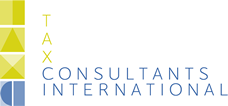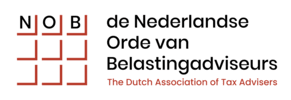On 10 July 2017 the State Secretary of Finance provided a letter to Dutch parliament in which he indicated that an internet consultation has been opened for a draft bill. The draft bill has been prepared in order to implement ATAD 1, which Directive was approved by the EU member states in June 2016, an EU directive that provides for a minimum harmonisation against tax avoidance.
Below we provide an overview of the contents of ATAD 1 and describe the implementation measures proposed by the State Secretary and for which the internet consultation is now open. The consultation will be open until 27 August 2017 and a final proposal for legislation is anticipated during the first quarter of 2018.
Contents of ATAD 1
ATAD 1 prescribes that by 1 January 2019 at the latest, EU countries should implement the following measures in their local tax system in order to minimise tax avoidance.
Limitation of interest deduction in the form of an earnings stripping scheme
Scheme for controlled foreign companies ("CFC rules")
General Anti Abuse Rule ("GAAR")
Scheme for exit charges
ATAD 1 also covers "Scheme for conflicts regarding qualification of hybrid structures". This has been further detailed in ATAD 2 (approved May 2017) and as a result also the implementation deadline has been extended to 1 January 2020.
Draft bill for implementation of ATAD 1
The draft bill contains measures 1, 2 and 4. In the view of the State Secretary measure 3 has already been sufficiently adopted with Dutch tax law (so called fraus legis) and is therefore not included in the draft bill.
Limitation of interest deduction
A taxpayer which is part of a group will have a limited deductibility on the net costs on loans (net interest costs). These will only be deductible up to a minimum of 30% of EBITDA (Earnings before Interest, Tax, Depreciation and Amortization). However, the non-deductible interest costs that exceeds 30% of EBITDA is deductible up to a maximum amnount of EUR 3 mln. For these taxpayers the following escape is proposed: If the ratio between average equity and average total assets is 2% points (maximum) lower than the same ratio on group level whereby average refers to the amounts at the beginnng and end of book year. Another escape is that the 30% of EBITDA as mentioned above is replaced by the ratio between the net interest costs and the profit before tax to a maximum of 30%.
If the taxpayer is not part of a group, has no related party or a permanent establishment then the limitation on interest deductions is not applicable.
Non-deductible interest (based on this limitation) could be rolled forward indefinitely to next book years.
The consultation bill does not address what will happen to the current applicable interest deduction limitation framework in the Netherlands; this is left to the new government.
Scheme for controlled foreign companies ("CFC rules")
Based on ATAD 1 EU member states should introduce Controlled Foreign Companies ("CFC") measures or amend these within their national tax legislation. According to ATAD 1 two categories of income should be attributed to the parent entity if certain conditions are met. These are (1) non-distributed (passive) income ("Model A") or (2) non-distributed income from non-genuine arrangements ("Model B").
The Ministry of Finance decided to amend current CFC rules in Dutch tax law based on Model A which is mentioned in the draft bill. The CFC rules as mentioned in the draft bill indicate that non-distributed (passive) income (dividends, interest, royalties) from controlled entities should be attributed to the profit of the Dutch parent company. Controlled entities are entities in which the Dutch parent entity has 50% of the shares and is taxed at a rate of less than 12.5% based on Dutch standards.
The CFC rules will not be applicable if the following situations occur:
- If the subsidiary conducts real economic activities (with staff, assets and buildings);
- If 70% or more of the CFC's income could not be qualified as non-distributed (passive) income;
- If the CFC is a financial entity and 70% or more of its income has been derived from others then related entities or persons.
Scheme for exit charges
Dutch tax law already contains a scheme for exit charges. Currently, the Collection of taxes act indicates that the recovery of exit charges is deferred for 10 years. Within ATAD 1 this period should be reduced to 5 years.
What is next?
As stated above, a final proposal for legislation is anticipated during the first quarter of 2018. It is anticipated that this proposal may differ significantly from the consultation bill, as both input from the consultation phase will be taken into account and a more fundamental and budgetary discussion by a new government in the Netherlands once this has been formed.


.png)

